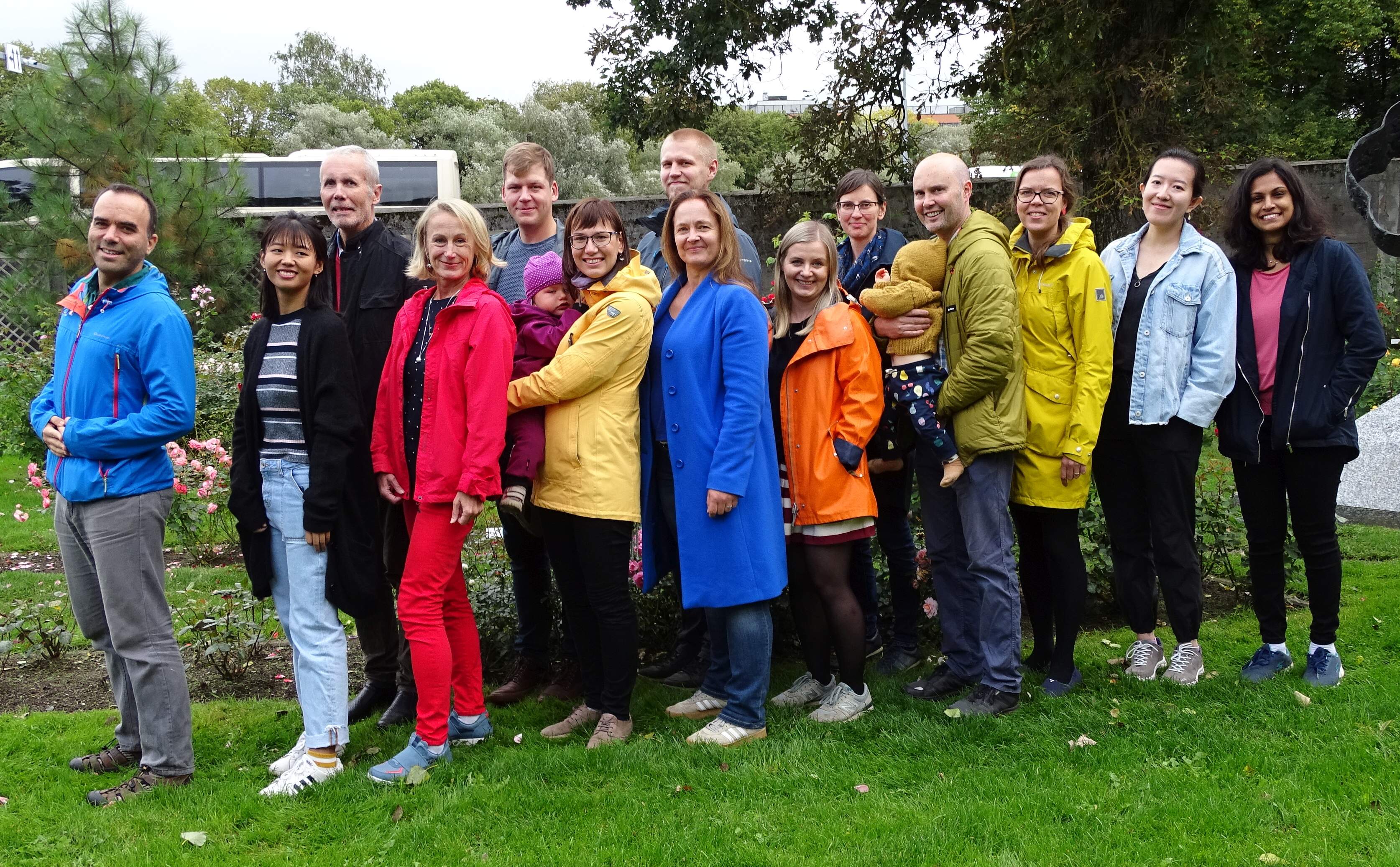Plant Ecology Laboratory
Research in our lab focuses on diversity patterns in biological communities, and on the interactions underlying these patterns. The main questions we address are: how do communities vary along natural gradients and gradients of human impact? What are the major assembly rules shaping communities; and are they attributable to biotic interactions or environmental heterogeneity? What are the roles of different biotic interactions - including competition, facilitation, herbivory and symbiosis - in structuring communities? Read more
News
Congratulations, Dr. Sepp!
December 2020
Yesterday was a happy and proud day for our lab as Siim-Kaarel Sepp defended his PhD thesis, supervised by Research Professor Maarja Öpik and Professor Martin Zobel.
It was great to follow the interesting discussion between Siim-Kaarel and hs oponent Prof. Marcel van der Heijden. We are looking forward for more fruitful discussions and exciting discoveries with Dr. Sepp!
New start!
September 2020
Our Lab has a new member as Marina Semchenko joined our lab with  Marie Sklodowska-Curie Fellowship.
Marie Sklodowska-Curie Fellowship.
We welcomed the new member and the fall with a group photo (Maret Gerz, Daniela Leon Velandia, Martti Vasar and Mari Lepik are absent).
NB! Now you can also keep an eye on our acivities by following our Twitter account.
Congratulations, Dr Vasar!
August 2020
On the 18th of August, our workgroup member Martti Vasar defended his PhD thesis „Developing a bioinformatics pipeline gDAT to analyse arbuscular mycorrhizal fungal communities using sequence data from different marker regions“. The oponent of the thesis was professor Philippe Vandenkoornhuyse from University of Rennes.

How mycorrhizal associations influence plant communities - discussion in Science
February 2020
 In a recent review article published in Science, professon Martin Zobel and collegues discuss how mycorrhizal associations influence plant communities. They conclude that forming mycorrhiza as such but also the diversity of available mycorrhizal fungi and the type of mycorrhiza these fungi form can influence plant species dispersal and competition. Mycorrhizal associations can thereby influence the coexistence of different plant species and plant community composition. Read more here.
In a recent review article published in Science, professon Martin Zobel and collegues discuss how mycorrhizal associations influence plant communities. They conclude that forming mycorrhiza as such but also the diversity of available mycorrhizal fungi and the type of mycorrhiza these fungi form can influence plant species dispersal and competition. Mycorrhizal associations can thereby influence the coexistence of different plant species and plant community composition. Read more here.
Alien plants tend to hang out together
February 2020
 Alien plants species aggregate in their non-native range and do not blend into the native flora! This is a conclusion of a recent paper, published in collaboration of many researchers, including Kadri Koorem, Mari Moora and Martin Zobel. Using a global dataset, the authors also found that alien plant species in their new range grow in habitats, which are less species rich and produce more biomass than the habitats in their native range. The mechanisms behind such patterns still need to be explored but the aggregation of alien species need to be taken account when deciding how to manage these species.
Alien plants species aggregate in their non-native range and do not blend into the native flora! This is a conclusion of a recent paper, published in collaboration of many researchers, including Kadri Koorem, Mari Moora and Martin Zobel. Using a global dataset, the authors also found that alien plant species in their new range grow in habitats, which are less species rich and produce more biomass than the habitats in their native range. The mechanisms behind such patterns still need to be explored but the aggregation of alien species need to be taken account when deciding how to manage these species.
2022: march, august
2021: february, may, august, september, october
2020: february, august, september, december
2019: january, february, march, april, june, july, september, november
2018: january, february, march, april, may, june, july, october, november, december
2017: january, february, march, april, may, june, july, august, september, october, november, december
2016: january, february, march, april, may, july, august, october, november, december
2015: january, february, march, april, may, july, august, september, october, november
2014: january, february, may, july, august, september, november, december
2013: january, february, april, may, june, august, september, october, november, december
2012: january, february, march, april, may, june, august, september, october, november, december
2011: may, june, september, october, november

